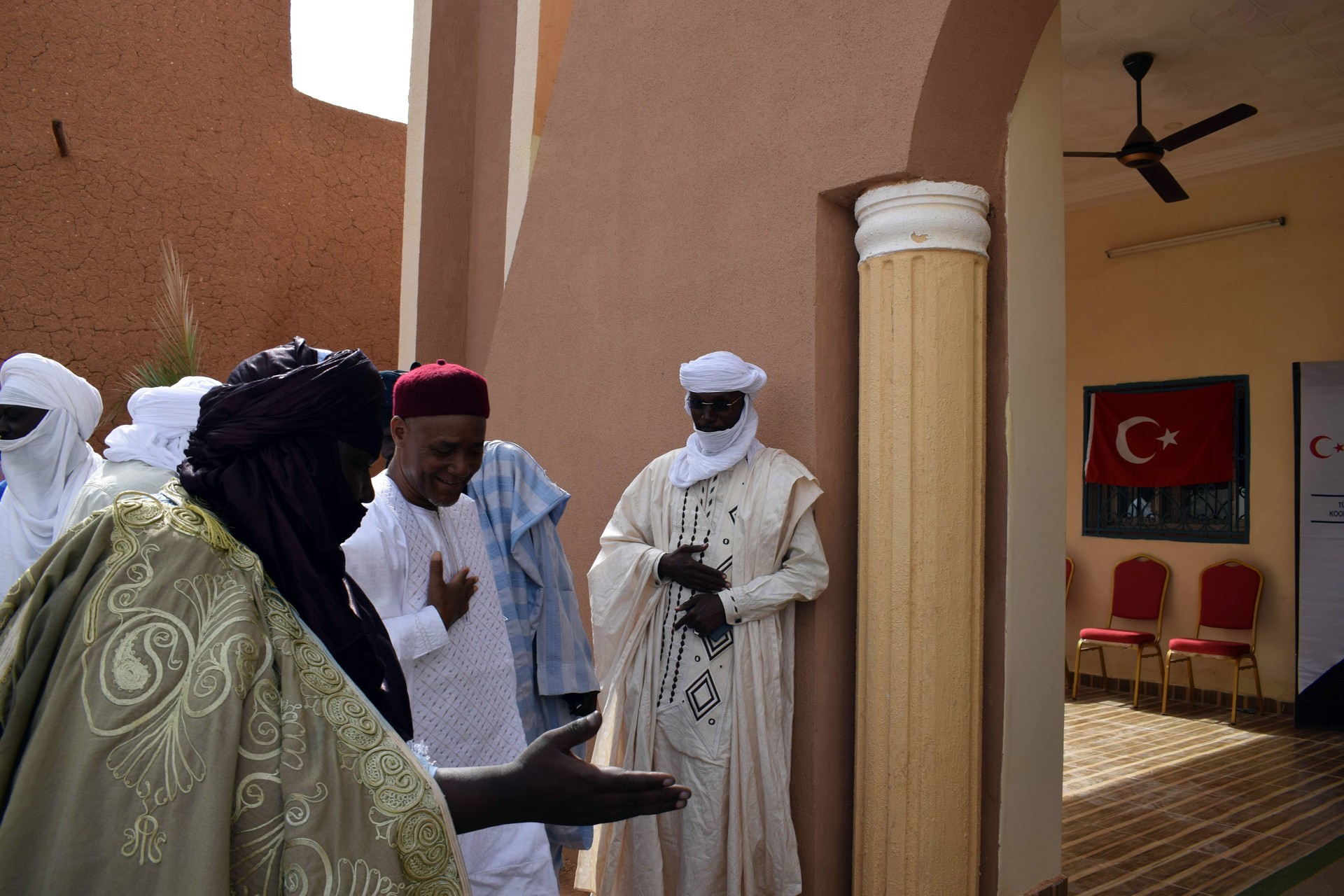
In Agadez, a city with a population of 124,000 in Niger, the tradition of honoring Ottoman sultans during Friday prayers continues.
This practice reflects the historical impact of the Ottoman Empire on Africa and the enduring connection between Agadez and the Ottoman legacy.
The Ottoman Empire, which extended beyond the Middle East and the Balkans, influenced regions including Southeast Asia and Sub-Saharan Africa.
Ottoman political and religious authority impacted Agadez, one of Niger’s largest cities.
In the 16th and 17th centuries, seeking Ottoman support was crucial for Muslim communities, including those in Agadez.
The presence of the Ottoman flag and the recitation of sultans' names during Friday prayers underscore the Ottoman Empire's lasting influence in the region.

This tradition may trace back to the 14th century when conflicts among Tuareg tribes in Niger prompted a delegation to seek help from Ottoman Sultan I. Bayezid.
Emphasizing their shared faith and the Ottoman Empire's role as a symbol of Islam, the delegation requested aid.
To address the issue and enhance Ottoman-Turkish presence, Bayezid appointed Yunus, one of his African concubines, as the sultan of Agadez.
Yunus resolved the problems and established Ottoman-rooted governance in Agadez, naming a local settlement "Istanbulewa" after Istanbul.

The tradition of reciting the names of 36 Ottoman sultans in Friday prayers continues as a living testament to the Ottoman influence in Agadez.
Sultan Oumarou Ibrahim Oumarou, the current ruler of Agadez, frequently acknowledged his descent from Sultan Yunus.
The continued presence of the Ottoman flag and the significant role of the qadi position in Agadez reflect how deeply Ottoman culture and heritage are rooted in this region.
The alleged connections between Agadez and Sultan Suleiman also add to the historical narrative.
In 1551, the Ottoman conquest of Tripoli under the sultan’s command increased ties with the Tuaregs, who viewed the Ottomans as saviors.
This period of aid and cultural exchange contributed to the lasting Ottoman influence in Agadez, evident in the local adoption of Ottoman attire and customs.
The true extent of the Ottoman connection to Agadez remains uncertain.
Claims of Ottoman military aid during the French occupation and the symbolic role of Ottoman identity in Agadez raise questions about the historical accuracy of these stories.
Nonetheless, the tradition of honoring Ottoman sultans in Friday prayers underscores a profound and enduring connection to the Ottoman legacy.